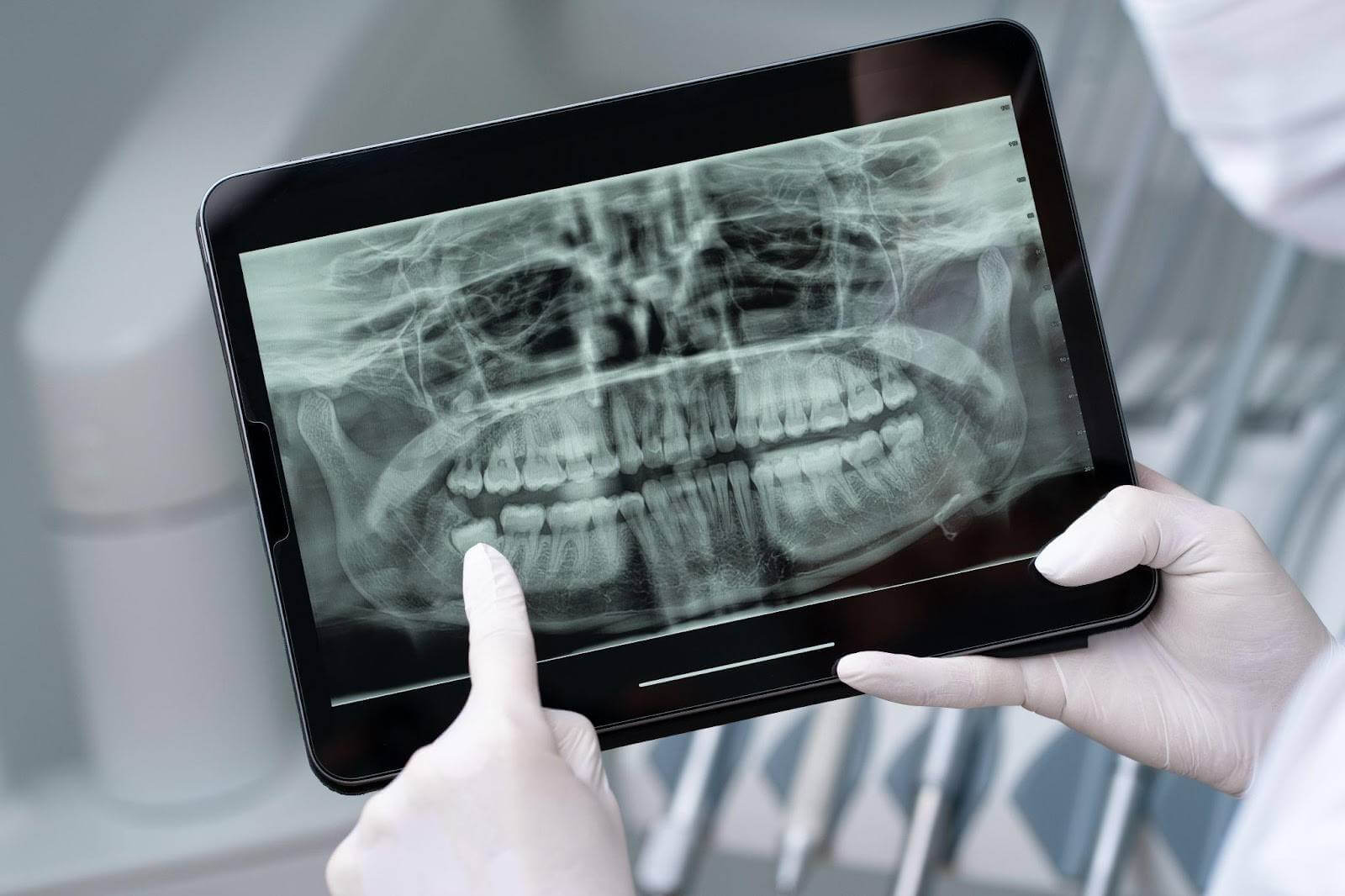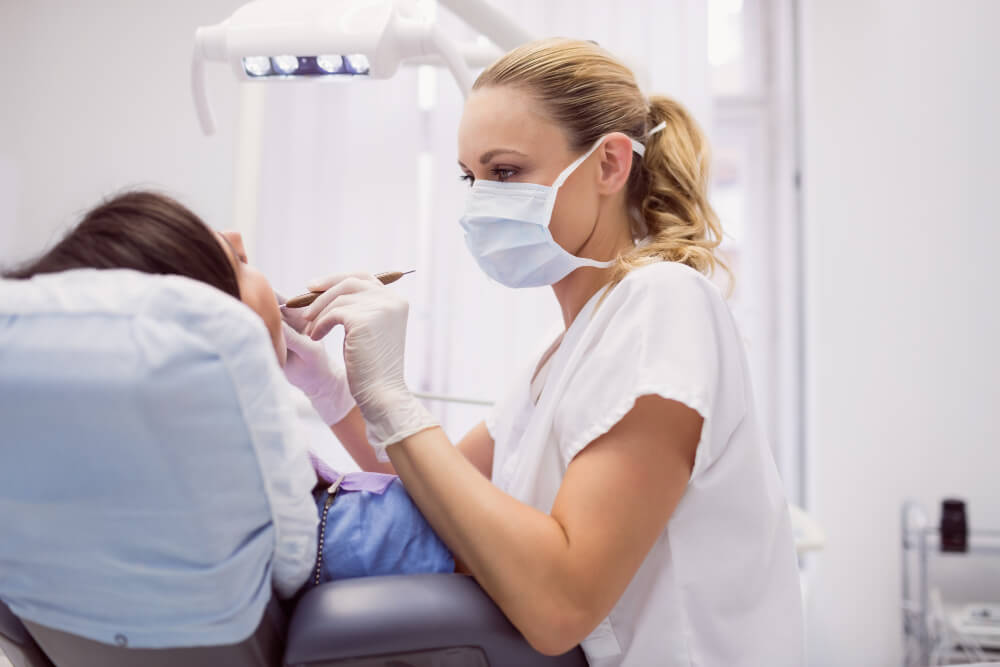Do I really need to get my wisdom teeth removed? What are the facts?

Wisdom teeth (third molars) are famous for sparking worry, gossip and there are plenty of opinions of them on YouTube, Facebook, TikTok and Instagram. Some people sail through life with all four wisdom teeth and never have trouble. Others face pain, infections, and plenty of drama. So what’s the truth: should you automatically remove your wisdom teeth, or can your wisdom teeth stay? This guide explains the facts, the official recommendations, the risks of keeping vs removing wisdom teeth, and how your dentist decides what’s best — with links to major professional bodies and research so you can trust what you read.
Quick answer (TL;DR)
Not all wisdom teeth need to be removed because it is case dependent. You don’t automatically need to have wisdom teeth removed. The general approach used by major dental and surgical bodies is: remove wisdom teeth if they’re causing problems or are very likely to cause problems. Prophylactic removal of all wisdom teeth can be recommended if your wisdom teeth are unlikely to be in occlusion or are non functional. If they’re healthy and well-positioned, many clinicians recommend careful monitoring rather than routine removal.
Reference: American Dental Association
What are wisdom teeth and why do they sometimes cause trouble?
Wisdom teeth are the third set of molars, usually appearing between about 17–25 years old. Problems occur because the jaws are often too small for those extra molars, or the teeth grow at odd angles (impaction), or only partially erupt so bacteria get trapped under gum flaps (pericoronitis). Consequences can include pain, tooth decay, gum infections, damage to neighbouring teeth, cysts, and — rarely — serious spread of infection.
Reference: AAOMS Oral and Maxillofacial Surgeons
What the major professional dental bodies say about wisdom teeth
- Australian Dental Association (ADA): recommend individualized assessment; removal if there are active problems or clear risks; otherwise monitor. Regular X-rays and clinical reviews help decide. Australian Dental Association
- American Dental Association (ADA MouthHealthy): wisdom teeth that are disease-free can remain but should be regularly reviewed; decisions made with your dentist. American Dental Association
- American Association of Oral and Maxillofacial Surgeons (AAOMS): removal is indicated for impacted/infected/otherwise problematic third molars; they provide patient guides on when extraction is appropriate. aaoms.org
- Australian & New Zealand Association of Oral and Maxillofacial Surgeons (ANZAOMS): oral surgeons provide specialist assessment and surgery when needed — emphasise tailored care and informed consent. ANZAOMS
Across these organisations the consistent message is: assess the wisdom teeth first — don’t default to “remove all wisdom teeth”. American Dental Association

What the research says about removing “healthy” wisdom teeth
High-quality reviews (including Cochrane) have examined whether prophylactic removal of disease-free impacted third molars is better than keeping them and monitoring. The headline: evidence does not definitively support routine removal of asymptomatic, disease-free wisdom teeth — because the harms of surgery (pain, infection, nerve injury) must be weighed against uncertain long-term benefits. In practice that means decisions should be case-by-case.
Reference: Cochrane Research
When removal is commonly recommended
Removal is often advised when one or more of the following are present:
- Tooth is not in occlusion or not functional
- Recurrent pericoronitis (gum infection around a partially erupted wisdom tooth). BioMed Central
- Tooth decay or periodontal (gum) disease that affects the wisdom tooth or adjacent molar, and can’t be treated predictably. AAOMS Oral and Maxillofacial Surgeons
- Damage to adjacent teeth (pressure or cavities caused by the wisdom tooth). AAOMS Oral and Maxillofacial Surgeons
- Cysts or tumours associated with the follicle around an impacted wisdom tooth (rare but serious). AAOMS Oral and Maxillofacial Surgeons
- When removal is required as part of other dental treatment planning (e.g., orthodontics, prosthodontics). American Dental Association
If your wisdom tooth is causing pain, swelling, repeated infections, or demonstrable harm to other teeth, removal is usually the right choice.
Risks of keeping wisdom teeth
Keeping wisdom teeth that are disease-free and well-positioned often carries low immediate risk, but there’s still a chance of future problems such as:
- Future decay or gum disease because wisdom teeth are hard to keep clean. American Dental Association
- Pericoronitis (recurrent gum infection) around partially erupted teeth. BioMed Central
- Late-presenting damage to adjacent second molars, especially from impacted wisdom teeth. AAOMS Oral and Maxillofacial Surgeons
- Age – the older you are the more complicated the risks and the longer the recovery period.
Because risk accumulates with time, many clinicians prefer active monitoring (periodic clinical exam and radiographs) rather than immediate removal when there are no current problems. American Dental Association
Why does my dentist recommend removing wisdom teeth early? Does Age Matter When it comes to removing wisdom teeth?
- Removing wisdom teeth when you are young require a shorter recovery period and lower risk of complications compared to leaving it and waiting for problems to occur
- If you still have your wisdom teeth at age 45, the chance that one of them shows clinically significant pathology is substantially higher than at age 25 — roughly in the ballpark of one in five to one in two (20–50%), depending on your population and how you define “disease.” Nature.com
- By age 55, that probability shifts further upward (estimated ~30–60%). The actionable clinical point: retaining asymptomatic third molars into middle age carries a real and rising probability of pathology, which is why many clinicians prefer monitoring and early intervention when signs of disease appear. MDPI
Risks of removing wisdom teeth
Even though extraction is common and usually safe, it is surgery — and carries risks:
- Pain, swelling, bruising and bleeding are common after surgery (usually temporary).
- Dry socket (alveolar osteitis) — delayed healing pain that can occur a few days post-op.
- Infection of the extraction site (treatable with antibiotics).
- Nerve injury: lower lip/chin (inferior alveolar nerve) or tongue (lingual nerve) numbness may occur rarely; most injuries resolve but some can be permanent. Risk depends on tooth position and proximity to the nerve. soms.com.au+1
- Sinus communication when upper wisdoms sit close to the sinus (rare). soms.com.au
Your surgeon/dentist will review radiographs and, if needed, advanced imaging to estimate nerve risk and discuss it with you prior to surgery. Australian Dental Association+1

So how do clinicians decide?
Decision-making is based on a combination of:
- Clinical exam — symptoms, gum health, hygiene access.
- Radiographs (X-rays or 3D x-ray CBCT if indicated) — show angulation, impaction, proximity to nerve/sinus. Australian Dental Association+1
- Patient factors — age, general health, ability to tolerate surgery/anesthesia, preferences.
- Evidence and guidelines — weighing the uncertain long-term benefit of prophylactic removal against surgical risks. Cochrane+1
Young adults often heal faster and have fewer surgical complications than older adults, so timing can matter — but the choice always rests on individual risk/benefit. Royal College of Surgeons
Alternatives to immediate removal
- Watchful waiting / active monitoring: regular checkups and X-rays; intervene if signs of disease appear. This is the usual path for asymptomatic, well-positioned wisdom teeth. American Dental Association
- Non-surgical management for infections: antibiotics, improved oral hygiene, irrigations, or operculectomy (removing the gum flap) may manage select cases short-term, but recurrent infection often leads to extraction. BioMed Central
What to expect if you do go ahead with extraction
- Pre-op assessment and consent (you’ll discuss risks and options). aaoms.org
- Anaesthesia: local, sedation, or general — chosen based on complexity and patient preference/medical status. aaoms.org
- Recovery: most people return to normal activities within a few days; full healing can take weeks. Follow post-op instructions: rest, soft diet, avoid smoking, maintain oral hygiene as advised. aaoms.org+1
Frequently asked questions (FAQ)
Q: If my dentist says “monitor”, does that mean I’ll definitely need surgery later?
A: Not necessarily. Many monitored wisdom teeth remain problem-free for years. Monitoring means you’ll have regular checks to catch early signs of trouble. American Dental Association
Q: Is it better to remove wisdom teeth when I’m younger?
A: Younger patients generally heal faster and may have fewer complications. But removal should still be based on need, not age alone. Royal College of Surgeons
Q: Does keeping wisdom teeth increase my risk of systemic illness?
A: Major dental bodies note that poor oral health can contribute to systemic problems, but that is not a reason by itself to remove healthy, disease-free wisdom teeth. Maintain good oral hygiene and regular dental care. AAOMS Oral and Maxillofacial Surgeons+1
Q: What about wisdom teeth and orthodontics?
A: Removal may be recommended if wisdom teeth threaten orthodontic results, but routine removal solely to prevent crowding isn’t strongly supported by evidence. Discuss with your orthodontist and dentist. Cochrane
How My Local Dentists approaches the question
At My Local Dentists we:
- Do a thorough clinical exam and take appropriate x-rays and radiographs. Australian Dental Association
- Explain the pros and cons of removal vs monitoring in plain language.
- Refer you to an oral surgeon (ANZAOMS/AAOMS specialist) if the case is complex or the nerve/sinus risk needs specialist assessment. ANZAOMS+1
Bottom line
There’s no universal rule: the right choice depends on the tooth, the X-ray, your symptoms, and your overall situation. Major dental and surgical bodies — in Australia, New Zealand and internationally — favour individualised assessment and monitoring when appropriate. Prophylactic removal of all wisdom teeth can be recommended if your wisdom teeth are unlikely to be in occlusion or are non functional. If you’re in pain, have recurrent infections, or your wisdom teeth threaten adjacent teeth, extraction is commonly recommended. If your wisdom teeth are healthy and well-positioned, careful monitoring is usually safe. American Dental Association+2Cochrane+2
Useful resources & references
(Selected links for further reading)
- Australian Dental Association — Oral Surgery & patient info. Australian Dental Association+1
- American Association of Oral and Maxillofacial Surgeons (AAOMS) — Patient guides on wisdom teeth. aaoms.org+1
- Australian & New Zealand Association of Oral and Maxillofacial Surgeons (ANZAOMS) — professional body pages. ANZAOMS
- Cochrane Review: Surgical removal versus retention for asymptomatic impacted wisdom teeth (summary of evidence). Cochrane
- Royal College of Surgeons guidance and systematic guideline reviews (useful for surgical risk overview). Royal College of Surgeons
- Recent clinical study on pericoronitis and mouthwash management (example of infection management studies). BioMed Central
If you’d like, we can:
- Review your X-rays and give a personalised recommendation.
- Book a consultation with one of our friendly and professional dentists to check your wisdom teeth today. Give our clinic a call and we’re happy to help you make the safest, most comfortable choice for your teeth. 🦷
Disclaimer:
The information provided in this blog is intended for general educational purposes only and should not be taken as medical or dental advice. It is not a substitute for professional diagnosis, treatment, or advice from a qualified dentist or healthcare provider. Always seek the guidance of your dentist or other qualified health professional with any questions you may have regarding your oral health or a medical condition. Never disregard professional advice or delay seeking it because of something you have read on this website.
